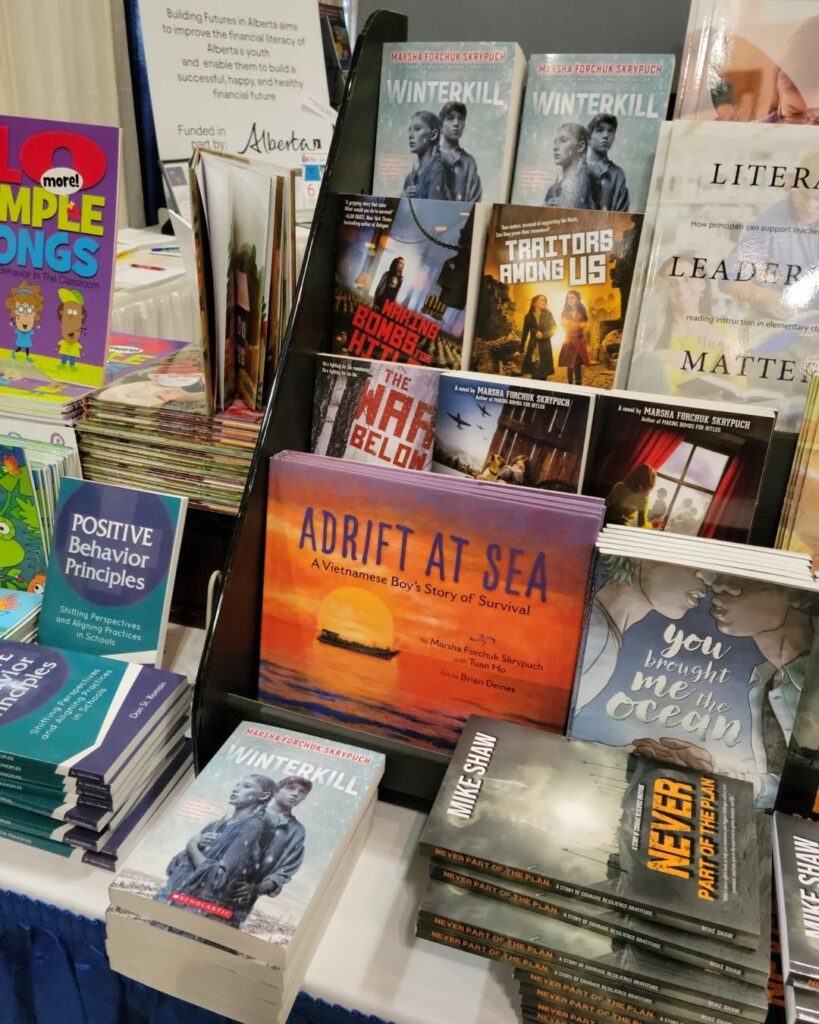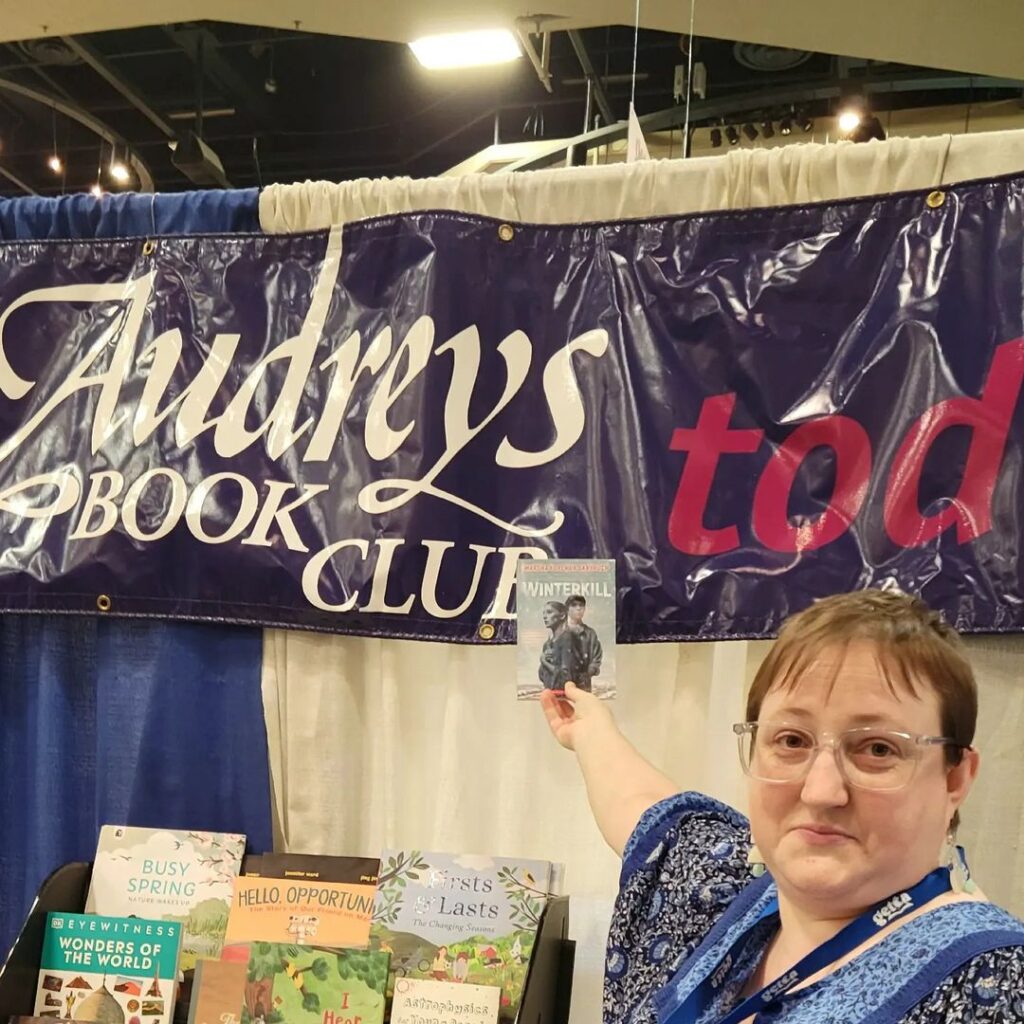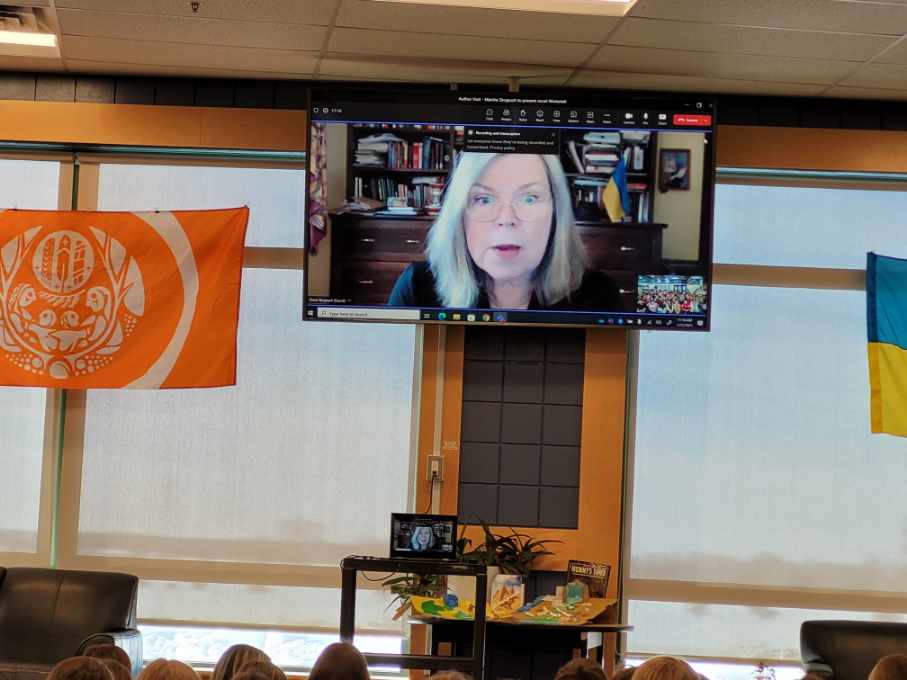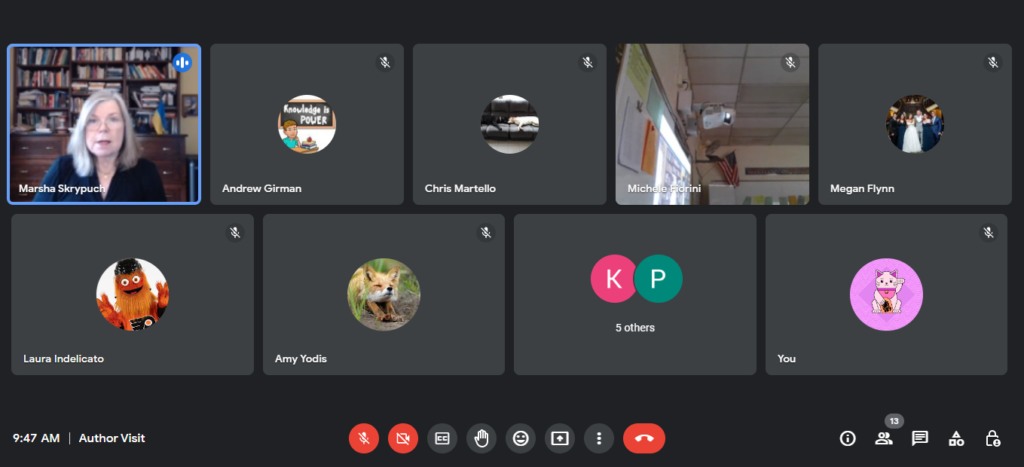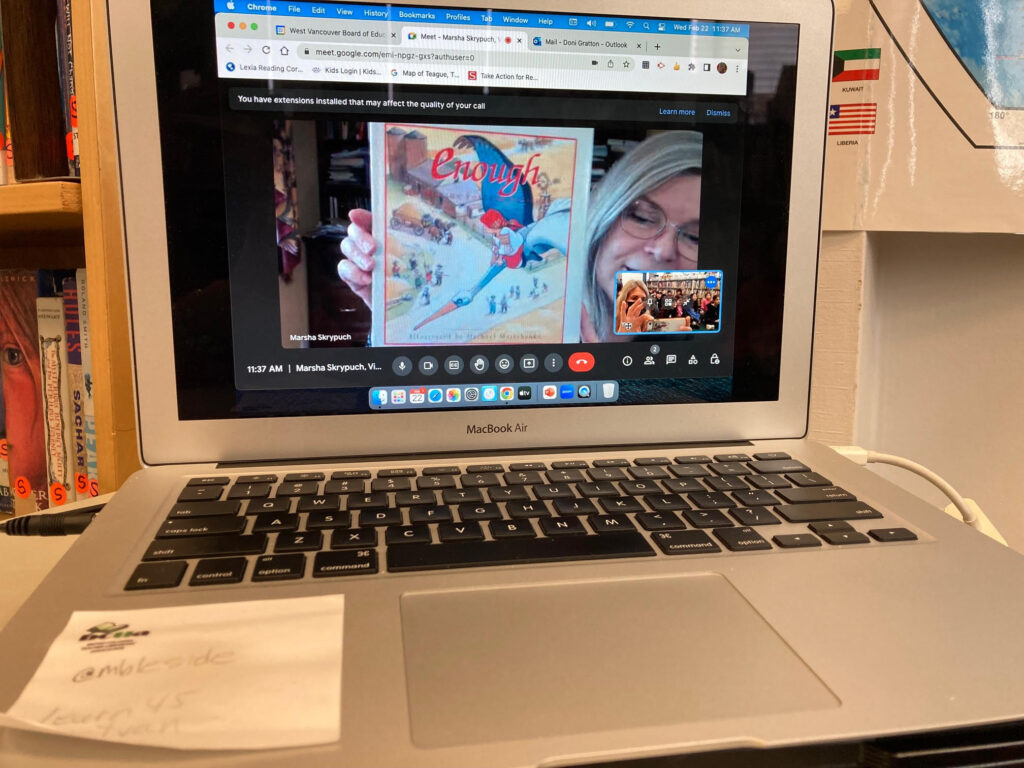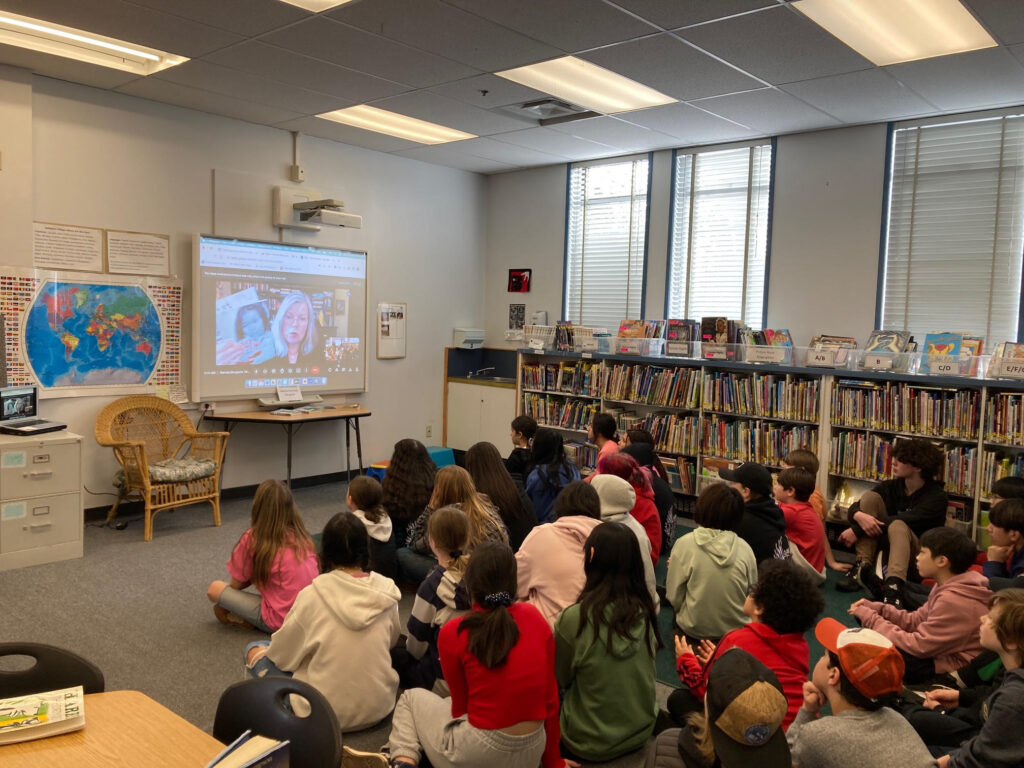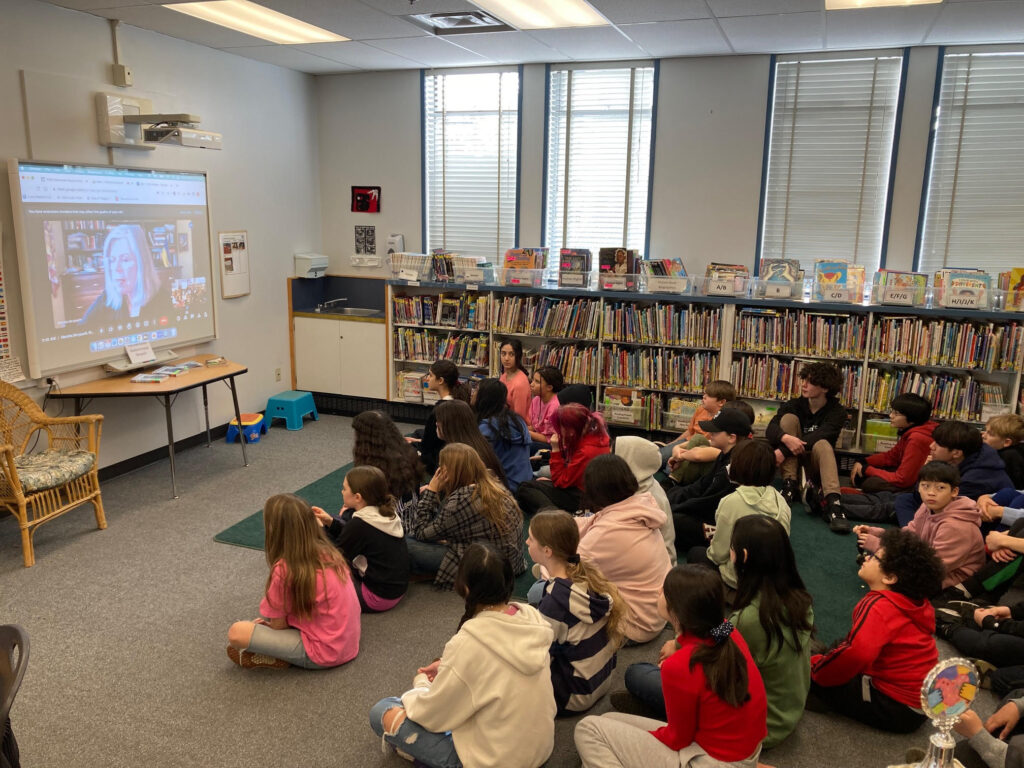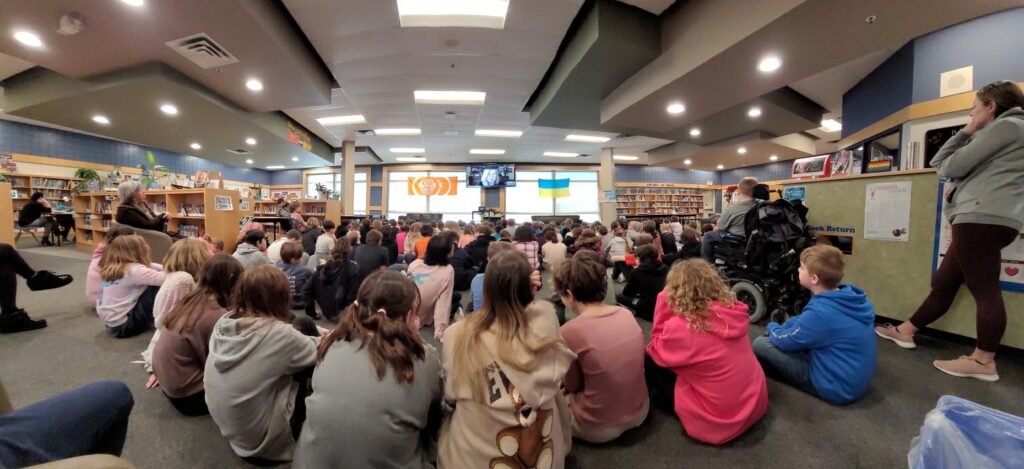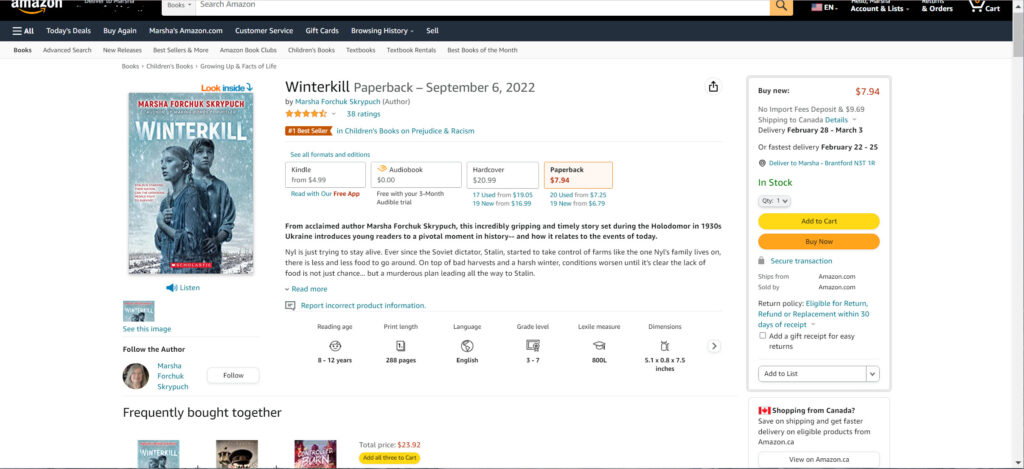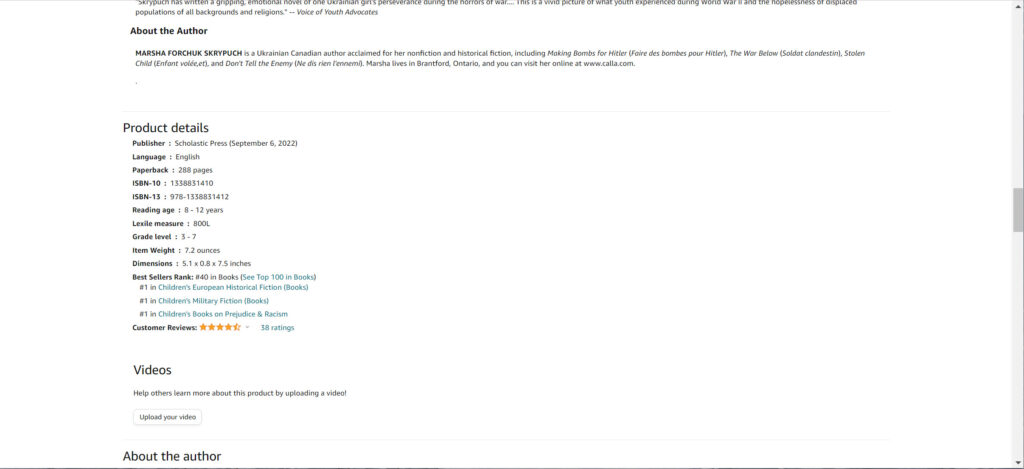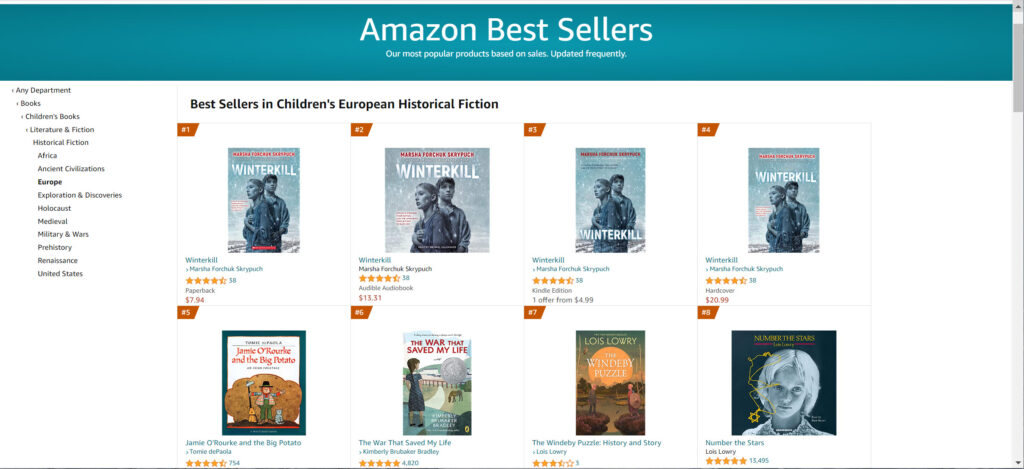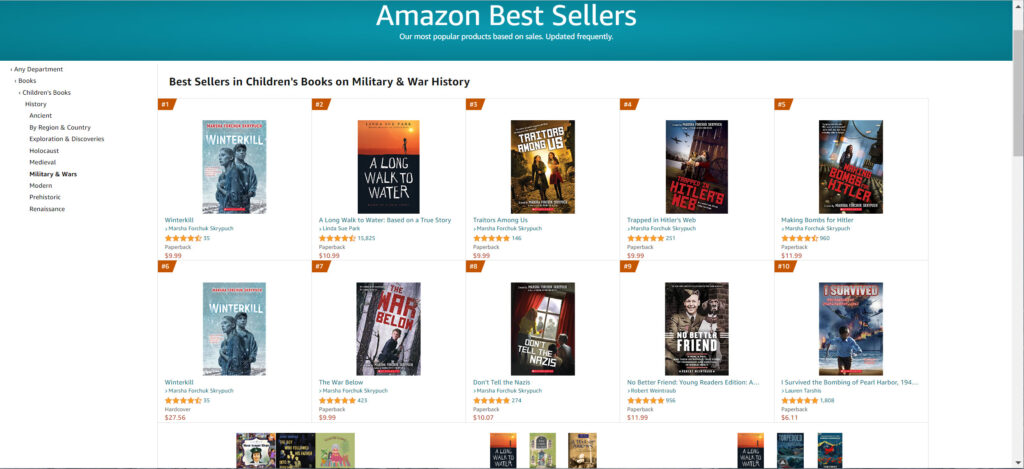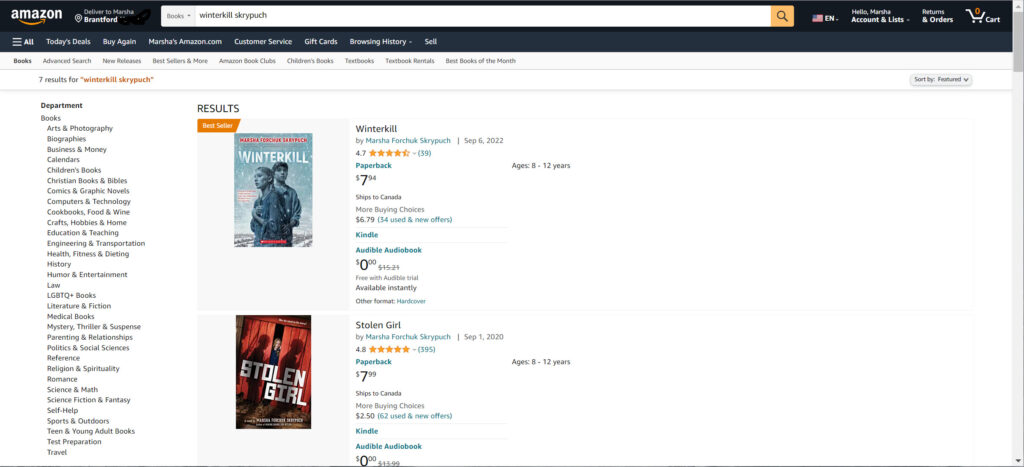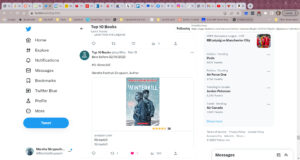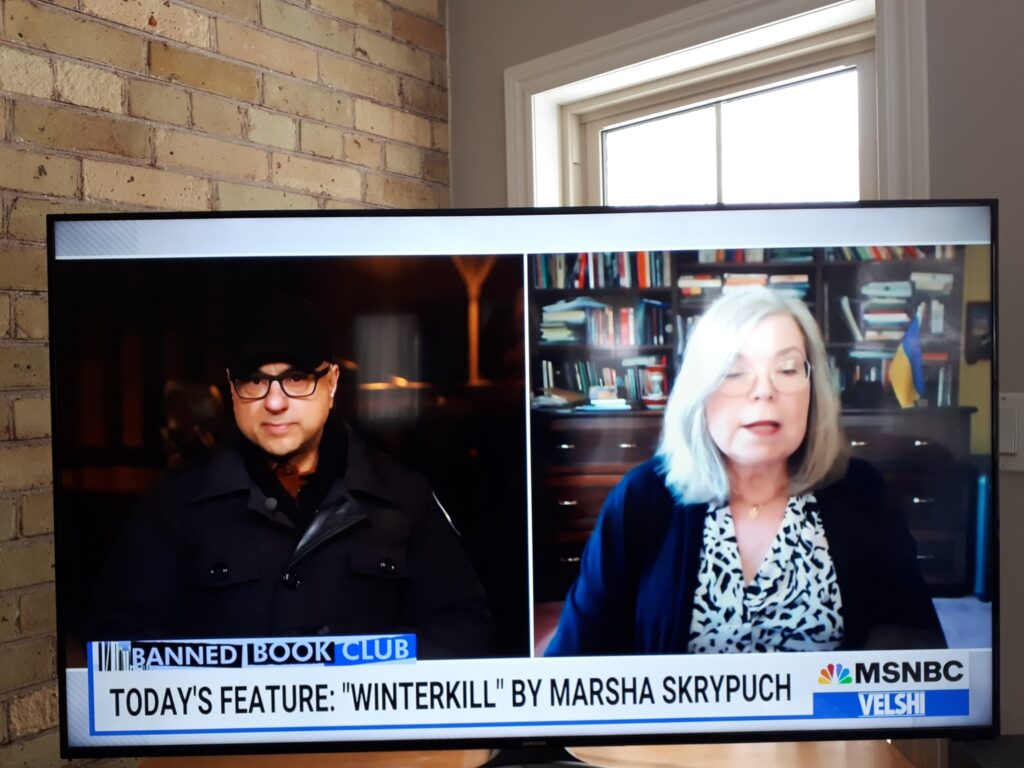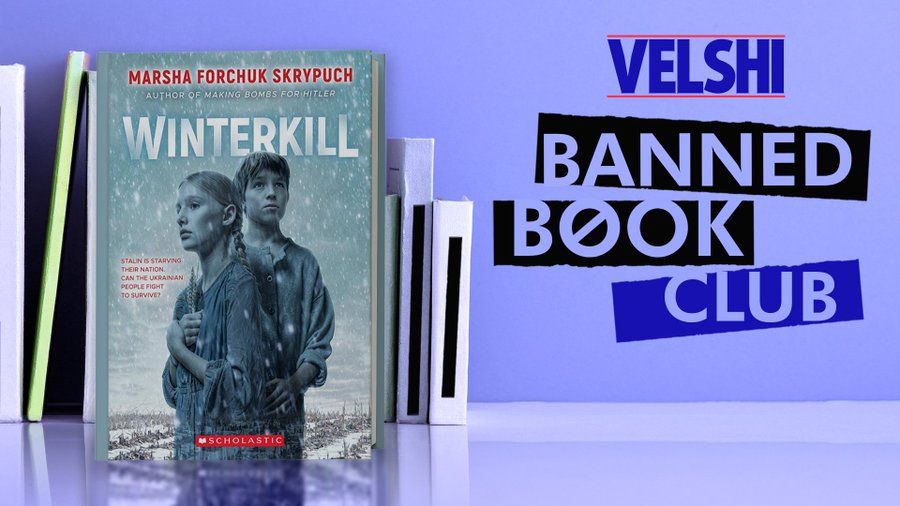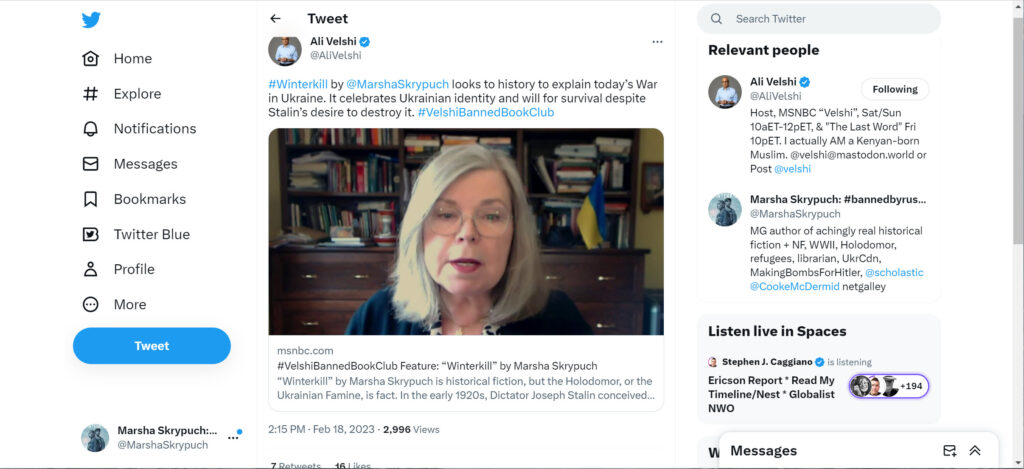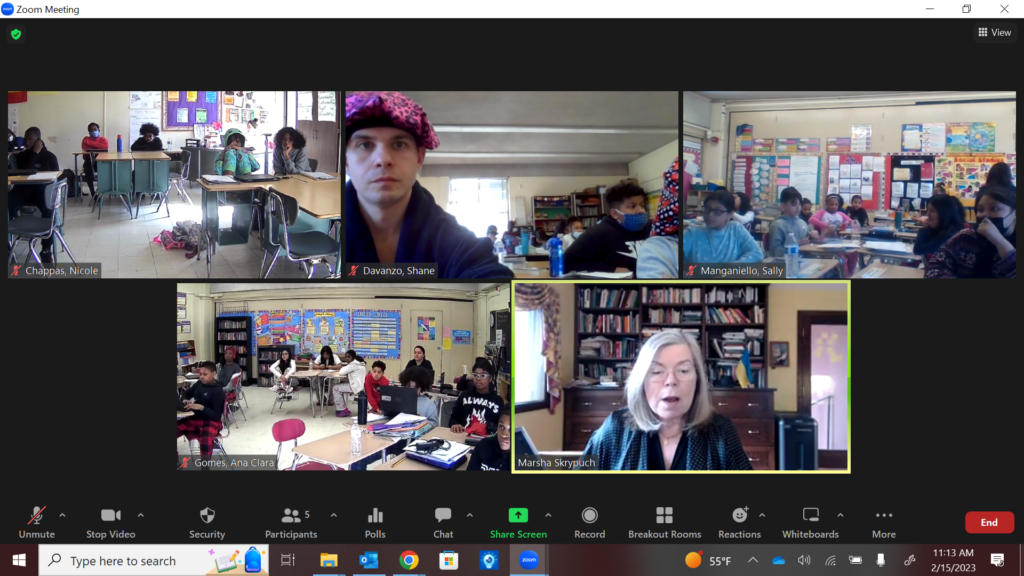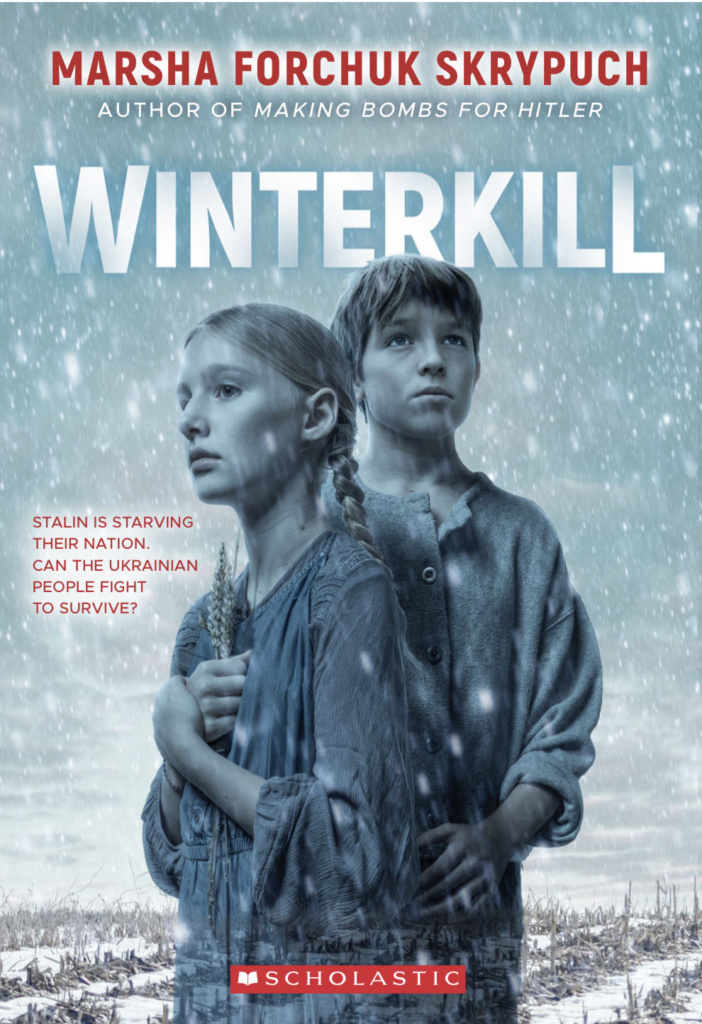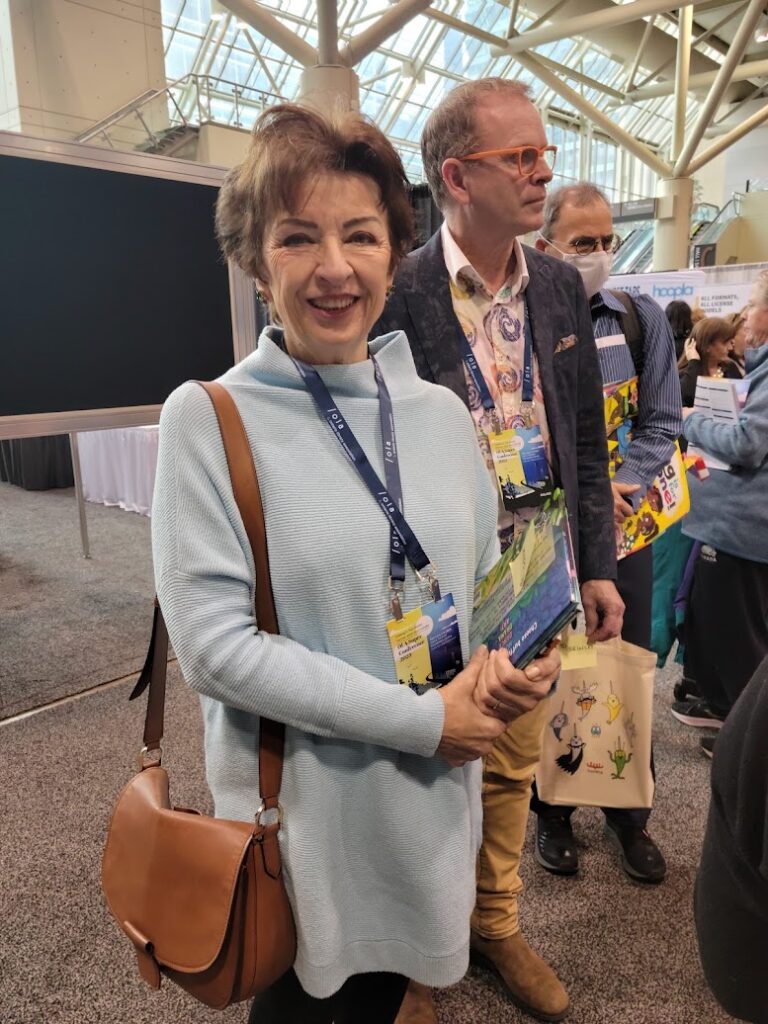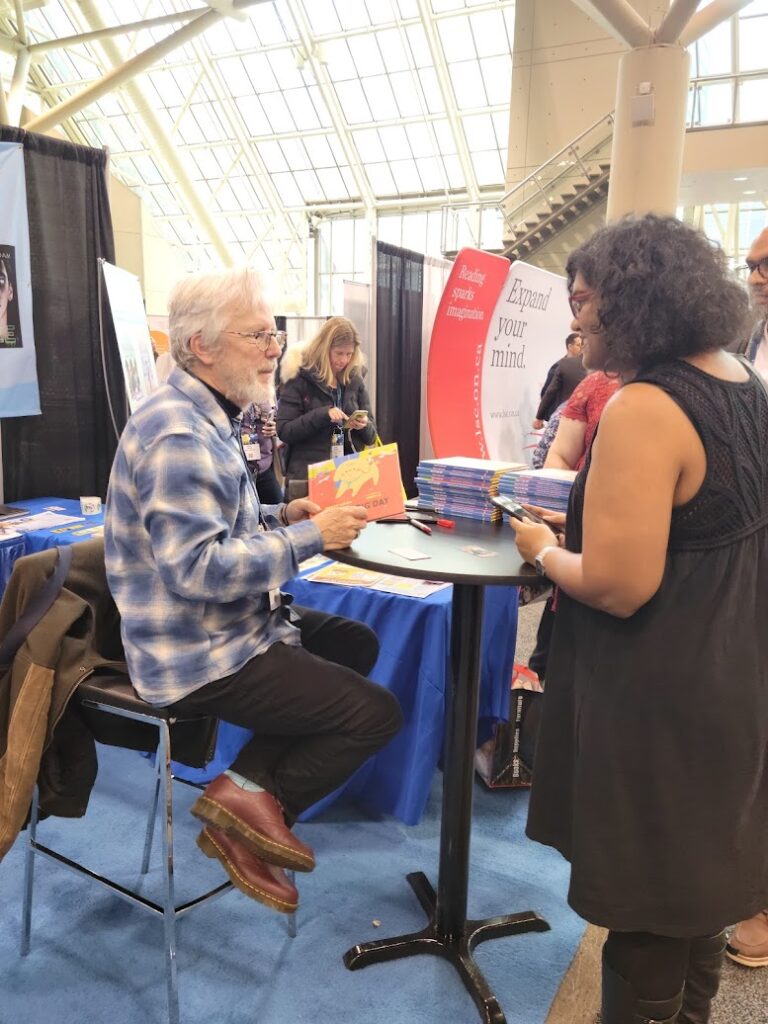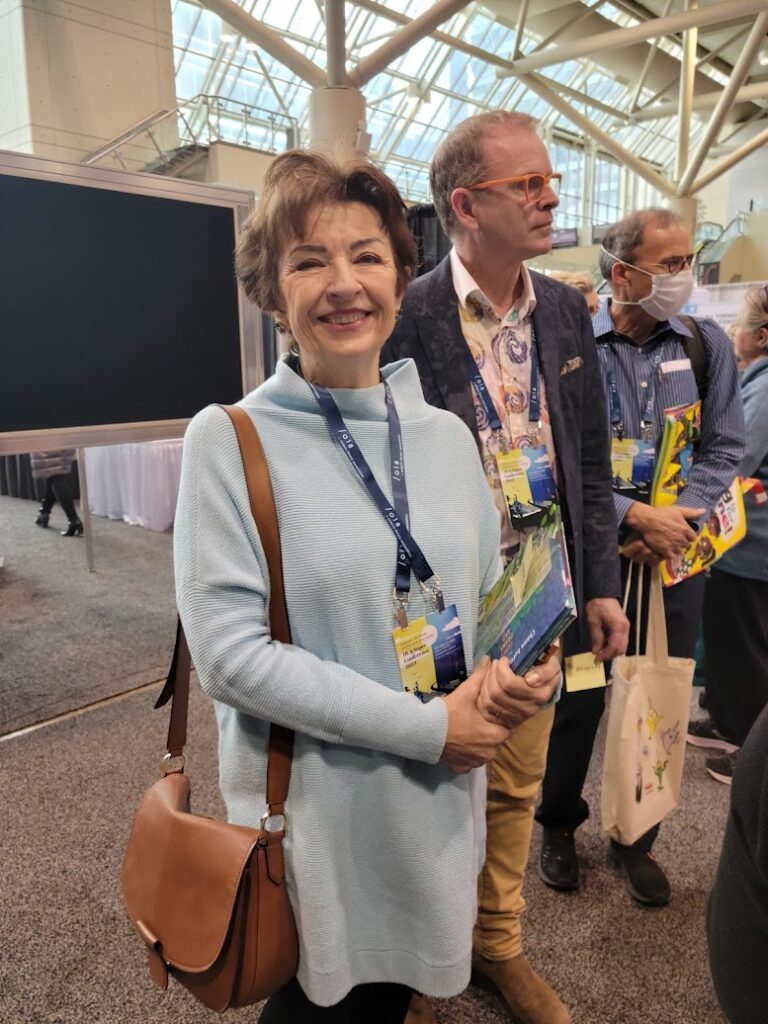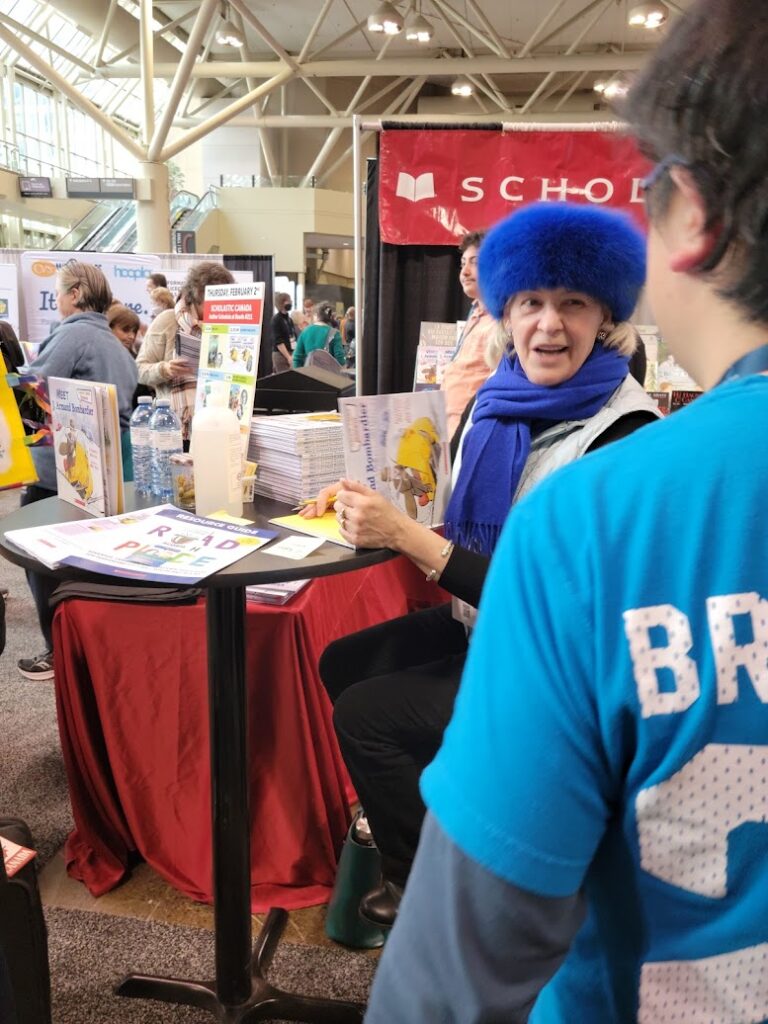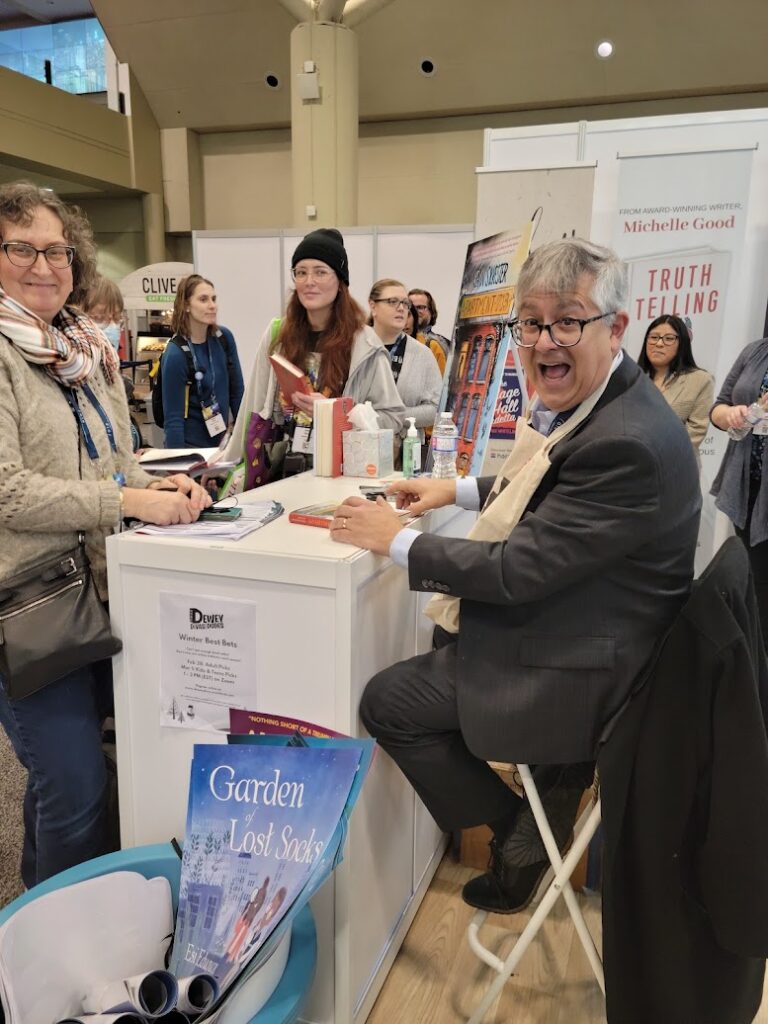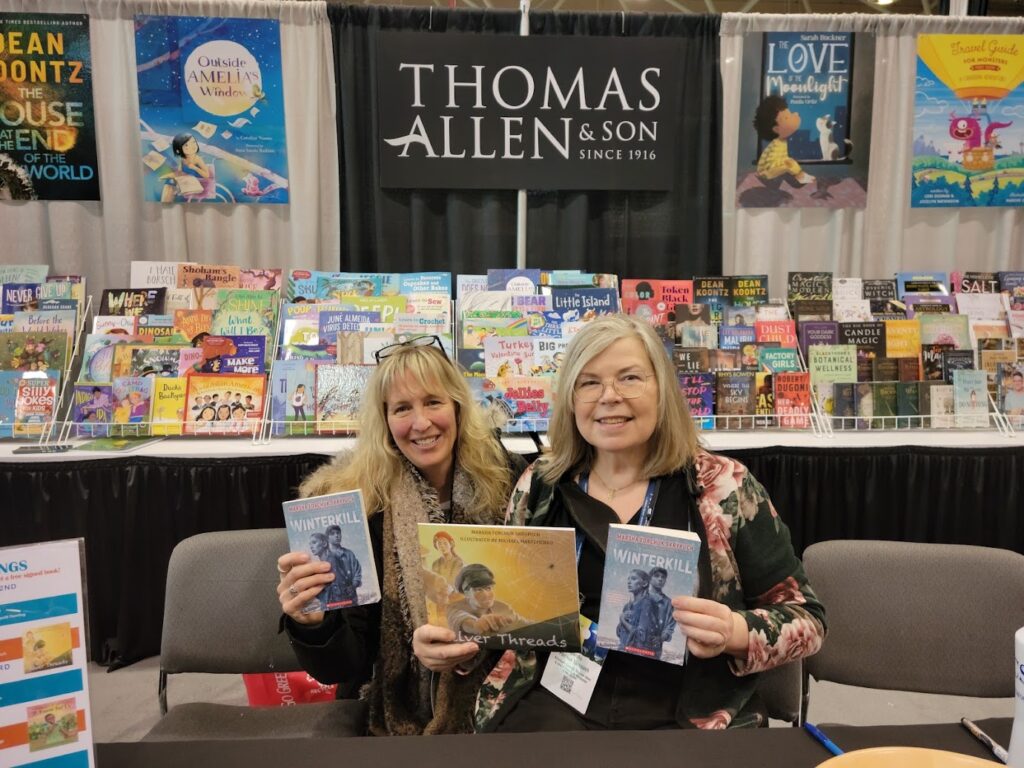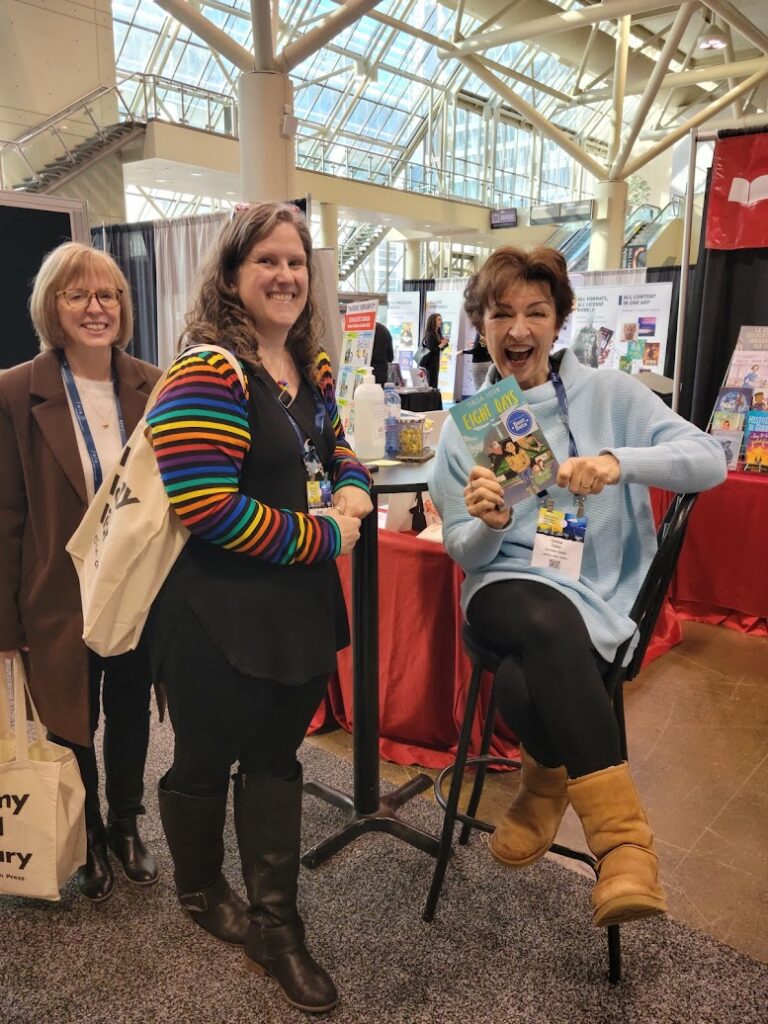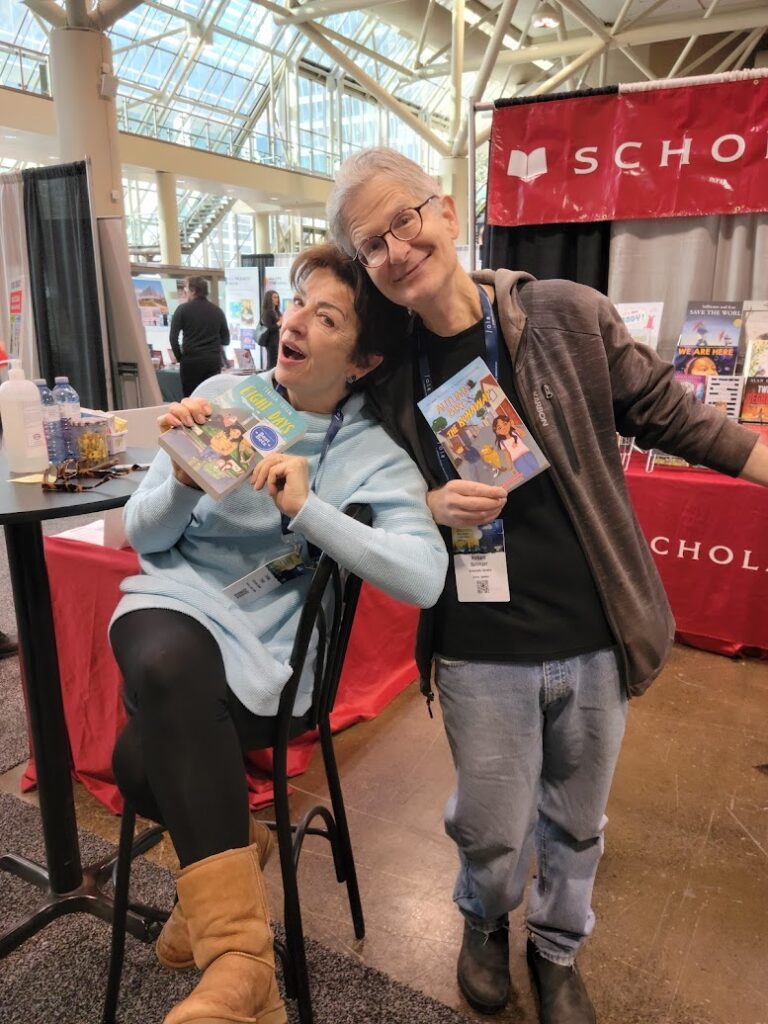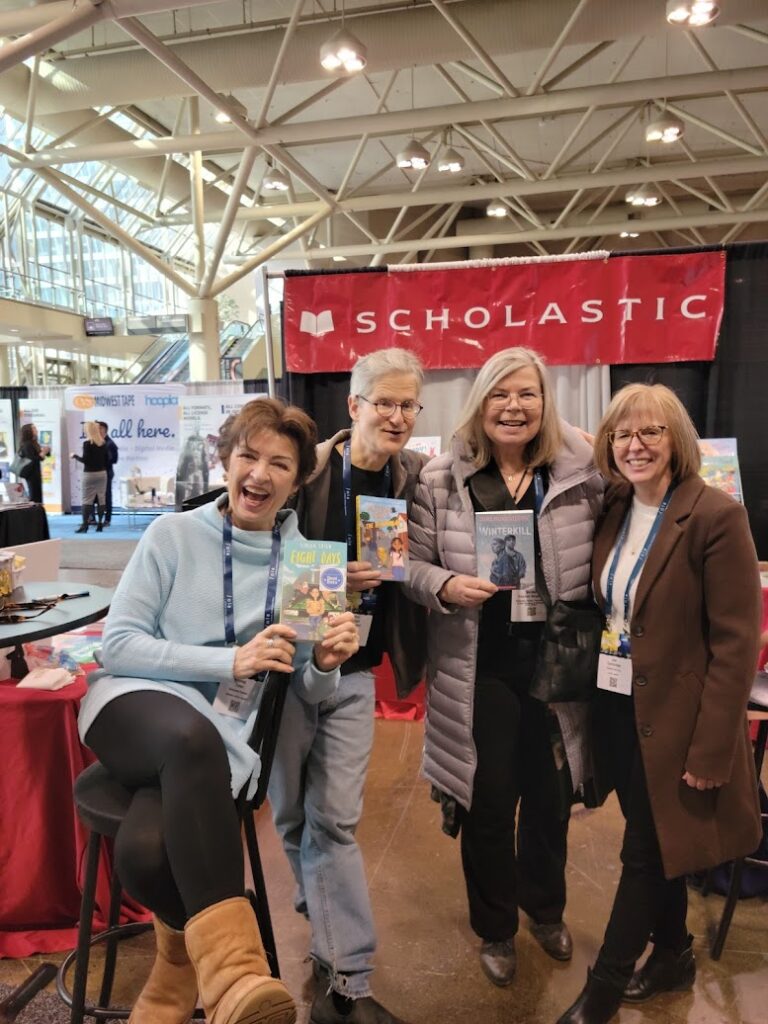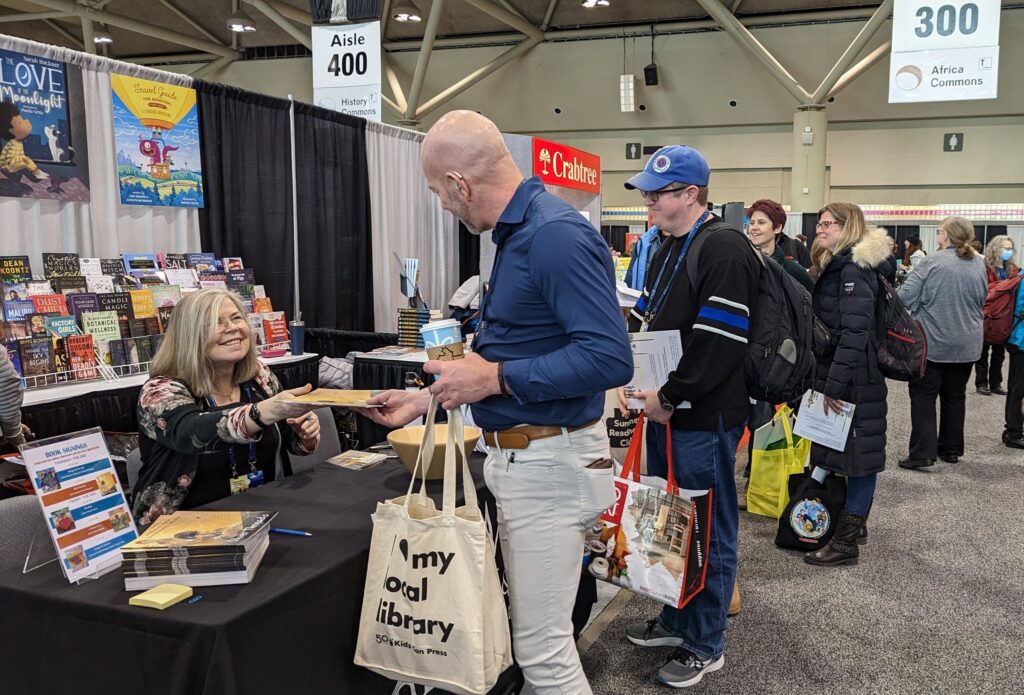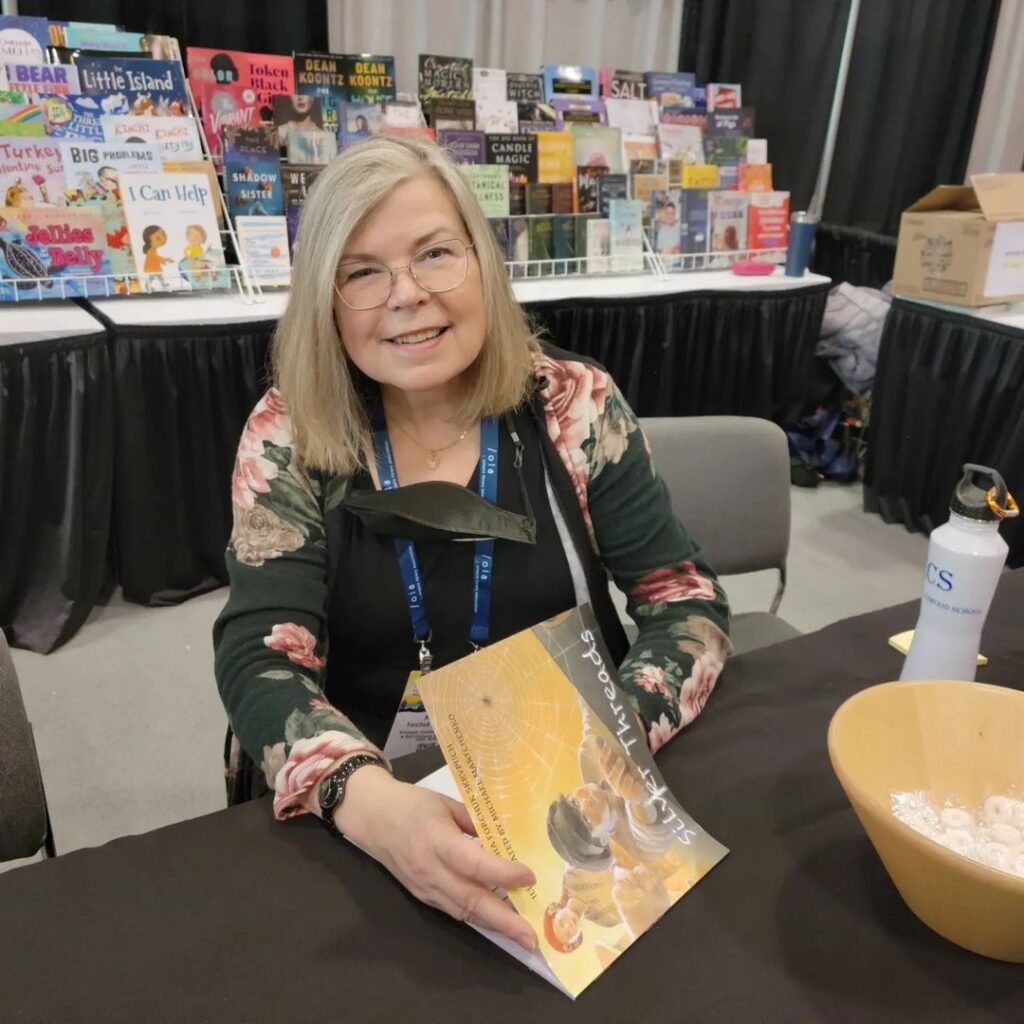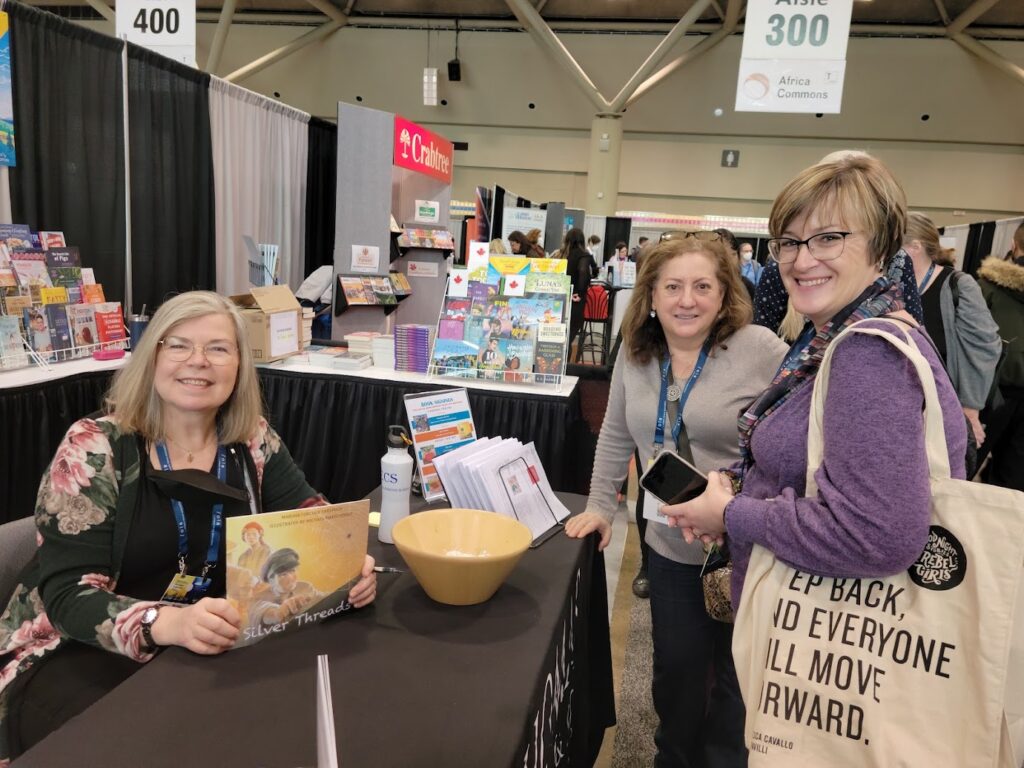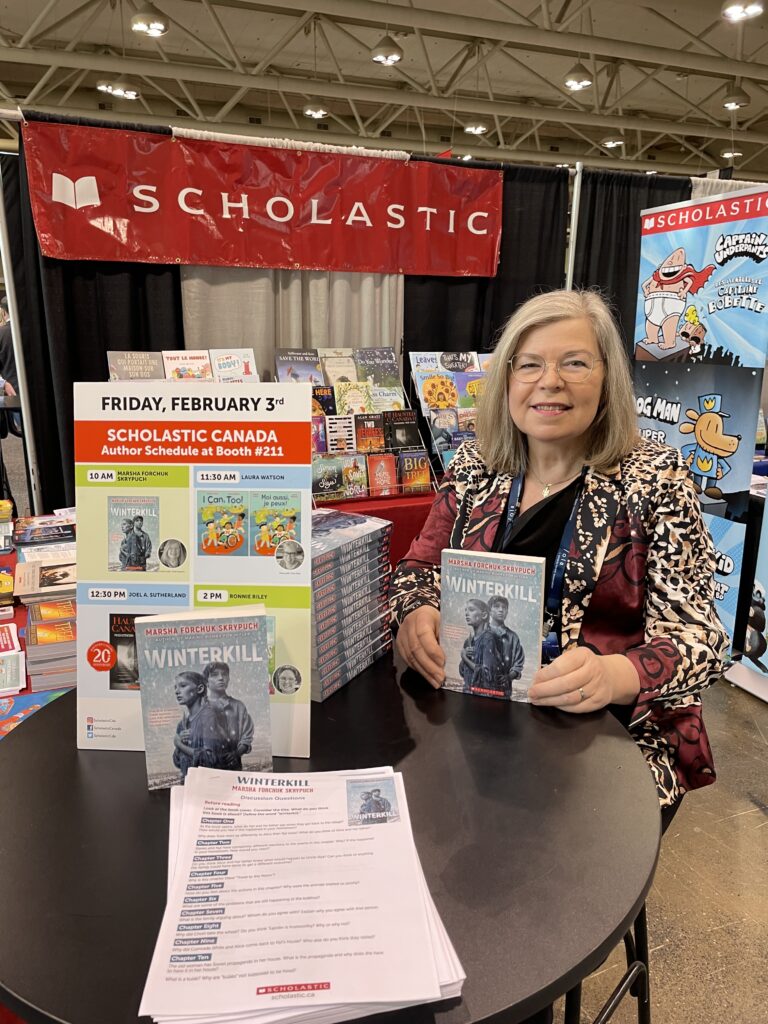It was a pleasure meeting with educators on Friday in Edmonton at the GETCA conference. This was my first in-person out-of-Ontario presentation since the spring of 2020. My topic was “How to talk to kids about the war in Ukraine”. I used the opportunity to dialogue with educators rather than me being a talking head. I feel that it’s important to honor everyone’s expertise and educators have been dealing with a crush of refugees in their classrooms as well as an influx of questions about the war. The discussion was illuminating, with teachers of varied grade ranges sharing situations that came up in their classes and giving suggestions to each other. My background as a writer of war books for kids means that I’ve spoken to young people on the topic of war for as long as I’ve written books and this gives me a sense of what various maturity levels can and cannot handle. As research, I’ve interviewed war refugees of all ages. This too gives me a different kind of insight.
One topic of discussion was propaganda and how to educate young people that all news sources are not equal. I referred them to my fellow children’s author Joyce Grant and the work she’s been doing to help young people be discerning about their news sources, plus that she’s involved in a kids’ news website called Teaching Kids News.
Joyce’s book, Can You Believe It is a great resource.
We also spoke about how art and writing projects can help refugee kids share their stories and how those same projects can help kids who haven’t fled war gain empathy as they imagine themselves in the same situation. I shared with them the #KidsFleeWar project.
Here are some pics from the Audrey’s Bookstore’s booth at the conference. Pretty nifty! I signed them all (okay, not all, only the books I wrote!)
